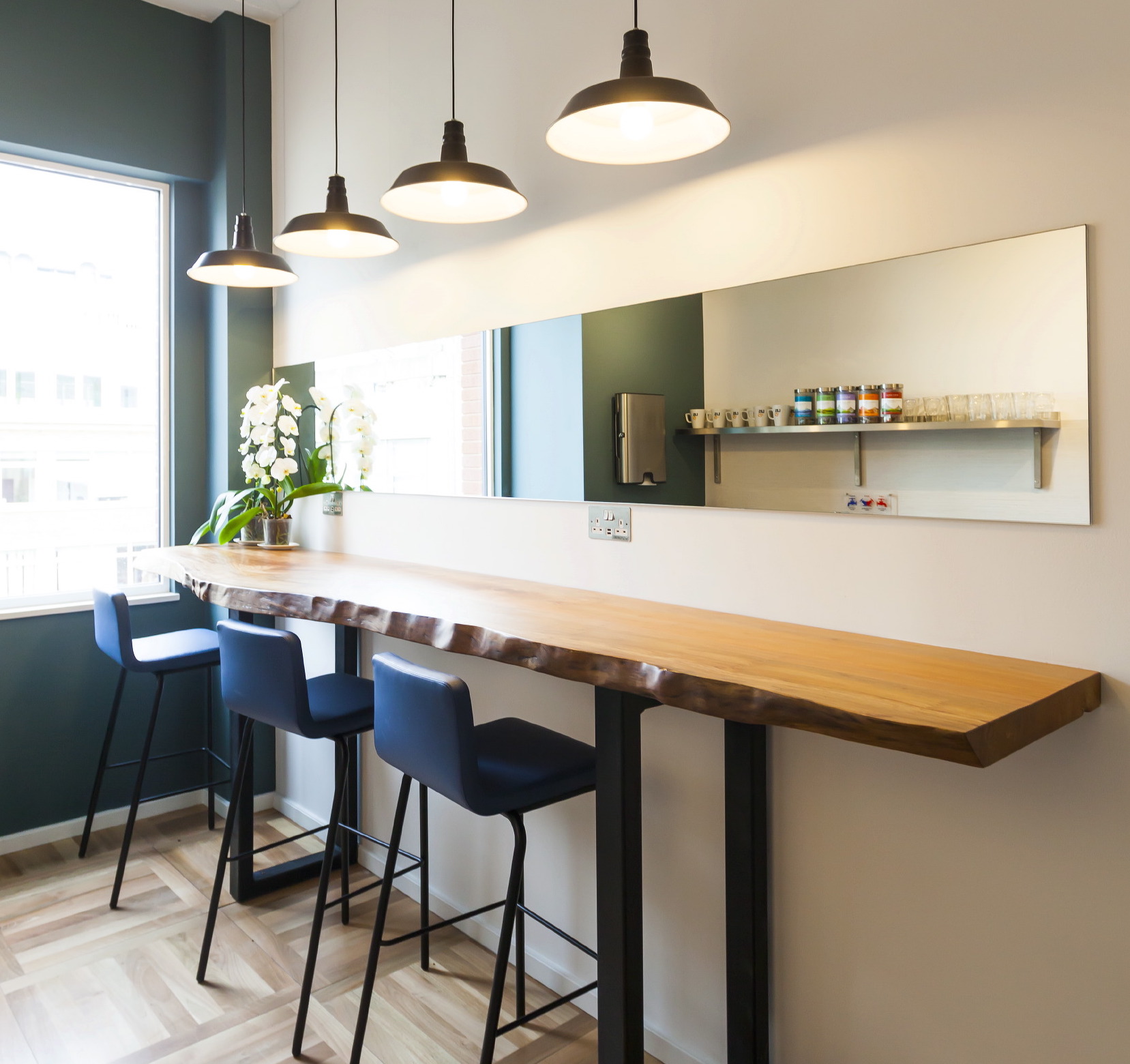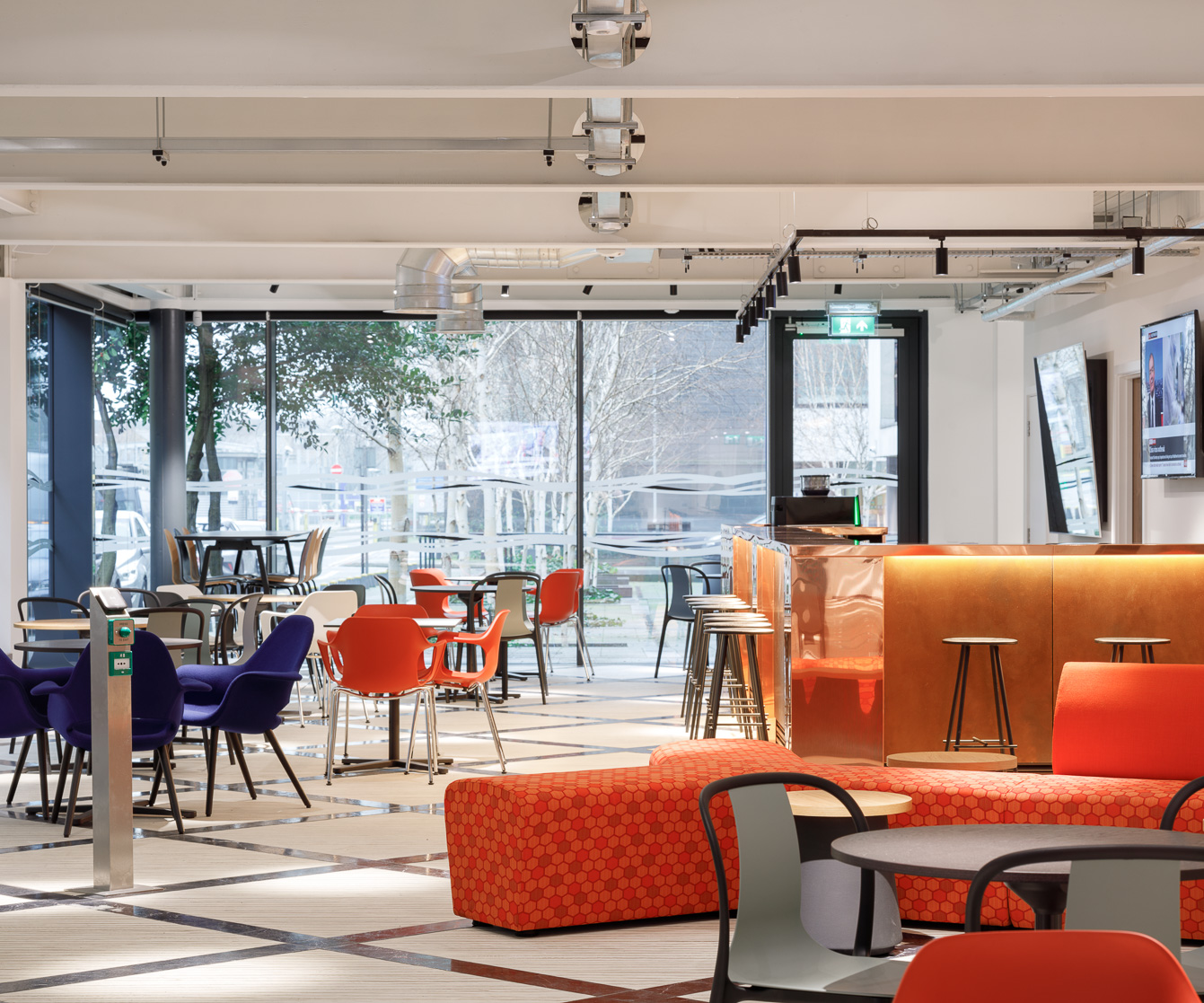Us&Co Blog
Co-working could be the best decision you ever made
Why do some start-up businesses fail, while others go on to establish themselves as saleable prospects? The factors that make up a successful entrepreneur are many and varied, but there’s one that will affect you no matter who you are, or where you take the leap into self-employment. Where you work! Your small business can thrive or die on the strength of its surroundings: and recently, it seems many have been growing healthily in a new kind of workspace.
The coworking environment is getting bigger. More start-ups and entrepreneurs are turning to these versatile commune-style offices to keep costs down and stay agile. But are they for you? I’ve taken a look at the benefits of coworking, and they certainly seem to stack up. Yes, you’ll hear plenty of claims in the next few months about the one business decision you make that could change your life. But coworking might really be a step in the right direction.
1. Space to be you
An entrepreneur and their idea are inseparable. You walk, talk, and breathe your small business. In a coworking environment, you’re given the space to be you, without any pressure to edit your personality or your idea to fit a corporate ethos. In fact, coworking environments create a stronger version of you (and by extension a stronger version of your brand), because they are filled with other entrepreneurs doing other things. In this multicultural small business environment, you’re frequently required to tell other professionals what you do, which helps to refine your ideas and strengthen your sense of business personality.
2. Feedback that means something
Good feedback is like gold dust for an entrepreneur. Working alone at home, the only thing you can bounce your ideas off is the wall. And the only voice you’ll hear commenting on your thoughts is your own. But in a coworking space, where entrepreneurs and freelancers are thrown together, there are other viewpoints to hear and other skill-sets to tap into.
So, why would an uninterested freelancer take time to comment on your project? Because someday their going to need someone to give constructive thoughts on their project. Practice your big pitch on a handful of small business owners today, and they’ll ask you to spare 10 minutes to knock an idea around tomorrow.
The key to coworking feedback is that no-one’s competing with you. In a corporate environment, feedback is often tinged with a personal agenda. But when you share a coworking space with other small businesses, freelancers, and entrepreneurs, all of whom are in the same boat as you, there’s more support and less politicking. In other words: people who offer their help are really there to give it. What goes around comes around, and if you play by the unwritten ‘rules’ of the coworking setup, you’ll get as much back as you give out.
3. Communities that create
Coworking is about more than just putting a few entrepreneurs in a room. Running a start-up can be a lonely enterprise, dogged with second thoughts. Should I really be doing this? What if I’m risking my family’s income on a crazy idea?
The support of a community is a vital asset for an entrepreneur, and in a coworking space there’s a sense of shared vitality that transcends the individual businesses in the building. Suddenly, you’re working in a place where the concept of starting a business isn’t seen as crazy or unusual. And that’s vital soil, which the fragile plant of your idea needs if it’s going to grow. The bottom line: when you surround yourself with people who believe that a start-up can work, you create a positive atmosphere in which to develop your concept.
4. Not just for entrepreneurs
Coworking is not only for the single entrepreneur looking for a communal space to expose ideas. A small business with several employees can also benefit from the shared environment of the coworking office. And not only because of its easier costs and shorter commitments (see below). Coworking for a small business is about balancing the requirements of a growing company with the realities of workflow.
Evolving small businesses, whose ranks swell and dwindle with every project, benefit from the ability to occupy more or less of a coworking space as their needs demand. In the stages prior to taking on a number of full-time staff, when subcontractors are pulled in to get your company through the busy times, the ability to shift the boundaries of your office is a welcome one.
5. Space you can afford
It’s possible to run a thriving small business entirely from a coworking space, or even a subsection of a large, globally-recognised one. UK newspaper The Guardian, for example, has installed its USA newsroom in a coworking office.
The space you hire in a coworking environment is likely to be cheaper than renting a completely independent office of your own – not least because coworking spaces don’t tie you into multiple-year contracts. And while the temptation to completely control your environment may eventually be too much, it’s handy to be able to make the choice at leisure rather than be forced into a lease that lasts several years. Until you’re ready to step out on your own, coworking spaces can grow with your company–even to the extent of providing separate offices, useful for brands that need to develop and retain a specific culture.
Affordable, nourishing, encouraging, flexible–coworking spaces take some of the pain out of starting a small business. They provide an environment in which contacts can be made and skills shared. If you’re serious about your start-up, move it out of the garage. You won’t do a healthier thing than making ‘going to work’ feel more professional, and exposing your new brand to valuable resources.


